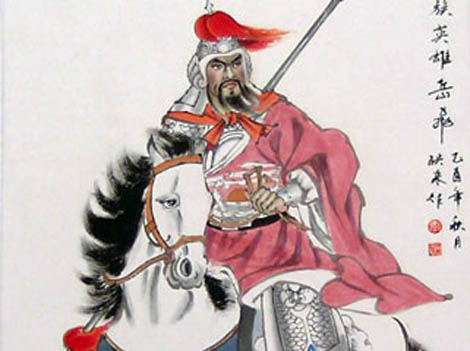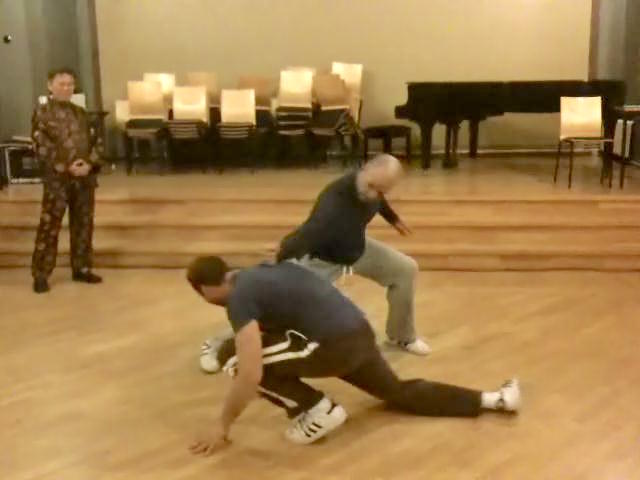WHY AM I OF WARRIOR'S CAST?

Marshal Yue Fei of the Song Dynasty, deified as the God of War
Question
How do we end up being warriors?
I consider my own body/mind the most difficult battlefield and I the most formidable opponent, and to overcome my own weaknesses has been the purpose of my entire life! But, why Sifu? Why or how do I or am of a Warrior's cast? Why do I take so much pride into standing for what I believe is trustful and honorable? Why do I am willing to spare my life for it?
-- Sifu Angel G. Perez Oliveras, Shaolin Wahnam Puerto Rico
Answer
Different people will answer the same questions differently, and my answers are as follows.
We can end up being warriors by practicing what warriors do.
We do not want just to be warriors, we want to be scholar-warriors, not in the literal but in the figurative sense.
In other words we do not want to be professional soldiers, take up arms and go to wars, while not being well versed in the scholar arts like philosophy, literature, painting and music. Rather we want to have and put in daily practice typical qualities of top warriors and scholars, like courage, fitness, determination, integrity, morality, mental clarity and intellectual prowess. In practical terms we want to excel in both our business and private lives.
Obviously, merely wishing to be a scholar-warrior, or reading about how to become one, does not make you into a scholar warrior. You become a scholar-warrior by doing what a typical scholar-warrior does. And to do that well, you need the qualities of top scholar-warriors.
An excellent way to accomplish this is to practice the philosophy and arts you have learnt in Shaolin Wahnam. Why? Simply because the philosophy and arts in Shaolin Wahnam are meant to train students to become scholar-warriors.
In principle, it is the same as if you want to become a lawyer you practice what you learn in a good law school; or if you want to be a deep-sea diver you practice what you learn in a good deep-sea diving school, because these schools train you to be a lawyer or a deep-sea diver.
Saying that he himself is his own most formidable opponent has become a cliché often with the person not really knowing what he means.
In many situations this saying is helpful. Amongst other benefits, it reminds the person not to give up easily, or to be vain when defeating other opponents.
But when we examine the saying with some mental clarity, it is often not true for many people. For many students in Shaolin Wahnam, for example, the saying is not true.
It is now actually harder for many students to defeat other martial artists in free sparring competitions than to practice free sparring the way I have been telling them to, including with an element of threat and undergoing the 30-Opponent programme. The interesting point is that if they put into practice my advice, not merely listening to it, they will eventually find it easy to defeat other martial artists in free sparring competitions.
For you too, though the above advice is not meant for you because you have taken part in and have won many free sparring competitions, your own body/mind is not your most difficult battlefield and you yourself are not the most formidable opponent. In my opinion, your body/mind is your easiest battlefield and you yourself are the easiest opponent simply because you have full control over your body/mind and over yourself.
Still, why do you believe in this saying? As I have mentioned earlier, different people may give different answers. My answer is that you have been conditioned to this cliché. Now you can look at it in a new light.
While you should overcome your own weaknesses, it should not be the purpose of your entire life. There are many other more meaningful and also more pleasant things to do, like using Wahnam Taijiquan to win international free sparring competitions and helping people with so-called incurable diseases to regain good health -- noble aims which I believe you have dedicated yourself to.
-- Grandmaster Wong Kiew Kit

Sifu Angel applying a Choy-Li-Fatt technique during sparring
The above is reproduced from the thread 20 Questions for Grandmaster: Choy-Li-Fatt and Kungfu against Other Styles in the Shaolin Wahnam Discussion Forum.
LINKS
